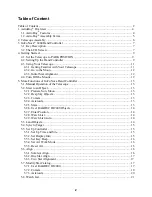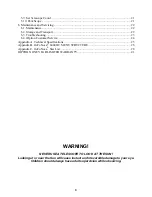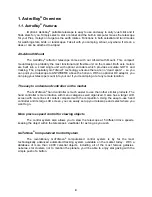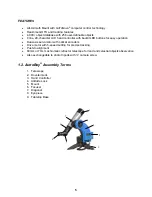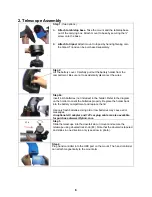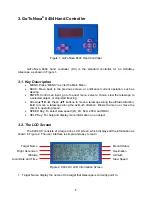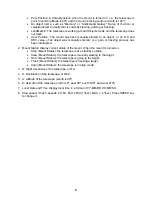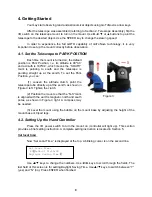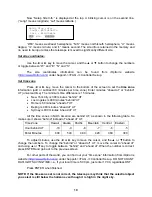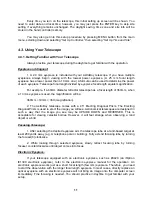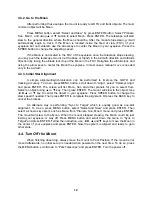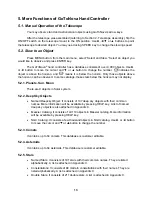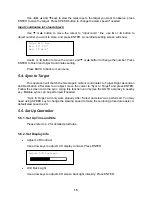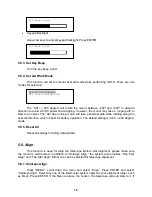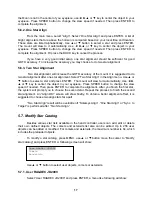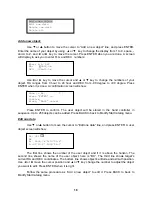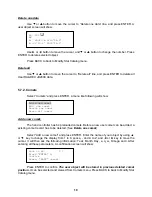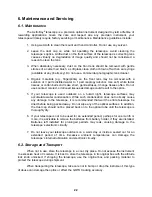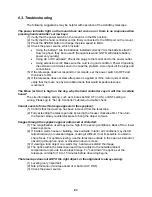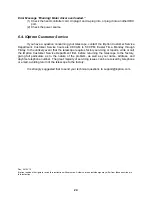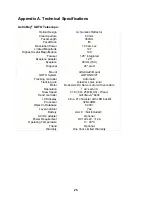
10
Now “Setup Site Info:” is displayed at the top. A blinking cursor is on the second line.
(“Longi” means longitude; “Lat” means latitude.)
“W/E” means west/east hemisphere; “N/S” means north/south hemisphere; “d” means
degree; “m” means minute; and “s” means second. The site info is retained in the memory and
no need to be input unless the telescope is moved to significantly different site.
Set site coordinates:
Use the
◄
or
►
key to move the cursor, and the
▲
or
▼
button to change the numbers
or toggle between “W” and “E”, “N” and “S”.
The site coordinates information can be found from iOptron’s website
(
http://www.iOptron.com
) under Support->>FAQ ->>Controller Set-up.
Set time zone
Press
◄
or
►
key, move the cursor to the bottom of the screen to set the
time zone
information (add or subtract 60 minutes per time zone). Enter minutes “ahead of” or “behind”
UT (universal time). The minimum time difference is 15 minutes.
•
New York City is 300 minutes “behind” UT
•
Los Angeles is 480 minutes “behind” UT
•
Rome is 60 minutes “ahead of” UT
•
Beijing is 480 minutes “ahead of” UT
•
Sydney is 600 minutes “ahead of” UT
All the time zones in North America are
behind
UT, as shown in the following table. So
make sure it shows “behind” instead of “ahead of” UT.
Time Zone
Hawaii Alaska Pacific
Mountain Central
Eastern
Hour behind UT
-10
-9
-8
-7
-6
-5
Enter Minutes
600
540
480
420
360
300
To adjust minutes, use the
◄
or
►
key to move the cursor, and the
▲
or
▼
button to
change the numbers. To change the “behind” or “ahead of” UT, move the cursor to “ahead of”
and using
▲
or
▼
key to toggle between “behind” and “ahead of”. When the number is correct,
press ENTER and go back to the previous screen.
For other parts of the world, you can find out your “time zone” information from iOptron’s
website (
http://www.iOptron.com
) under Support->>FAQ ->>Controller Set-up. DO NOT COUNT
DAYLIGHT SAVING TIME. i.e., if your local time is 5:00 pm, just enter 17:00, regardless DST.
Press ENTER when finished.
NOTE: If the time zone set is not correct, the telescope may think that the celestial object
you select is still below the horizon even though it is high in the night sky.
Setup Site Info:
Longi: W071d27m47s
Lati : N42d15m40s
300 Min. behind
UT


